Research
The new normal: What does it mean?

Our routines are changing as our lives are upheaved by the changes brought by COVID-19.
To discover more about what ‘the new normal’ means, Twitter has conducted some new research.
We’ve looked at how people are adapting to isolation and lockdown, and the physical and mental needs that are arising as a result.
The most important thing to note is that the current situation isn't a marketing opportunity. The critical thing to do right now is to speak to people in a way that meets the four need states identified below.
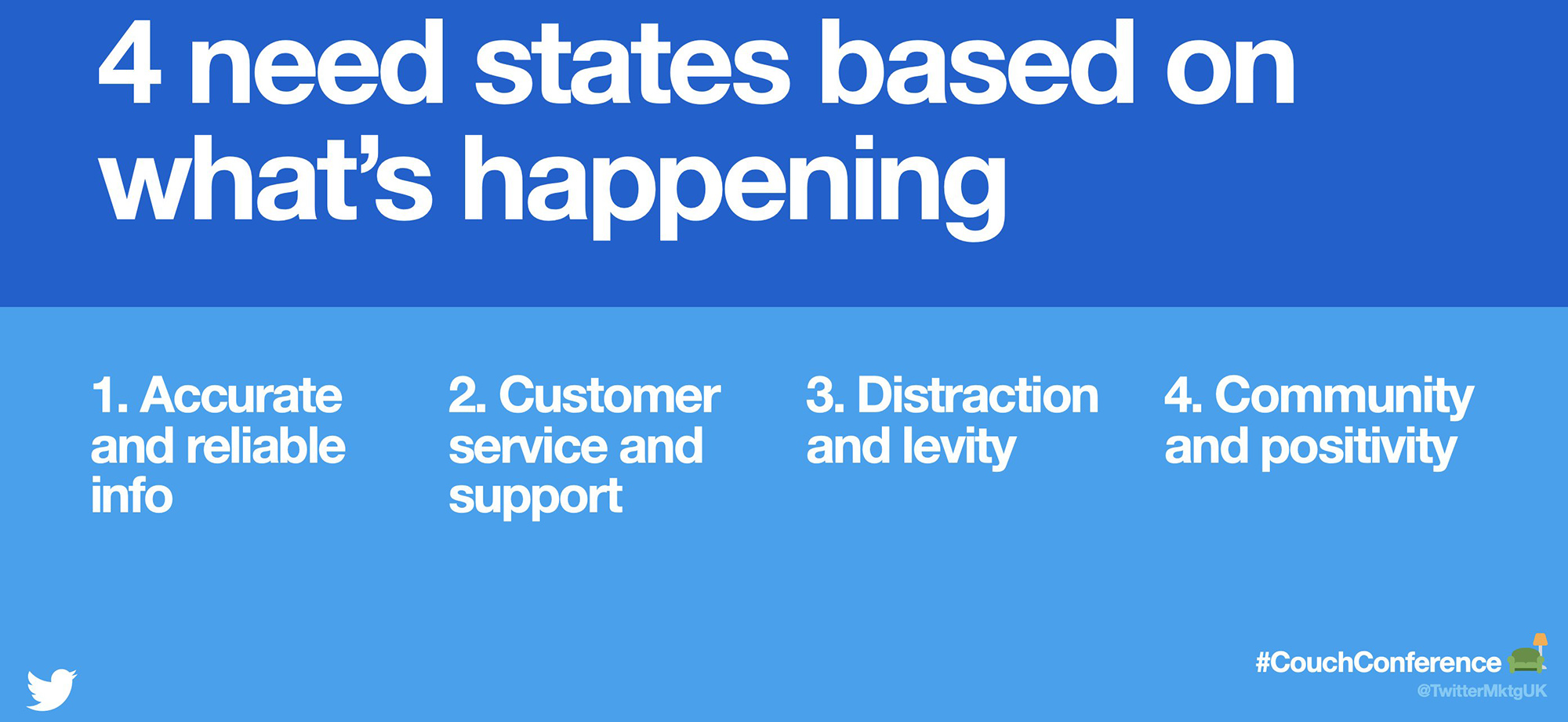
The change that has taken place is our new normal. Work, home, and social life have all been altered, and it’s something a lot of people are Tweeting about.
We see some fascinating behaviour emerge as part of our ‘new normal’.
We'll be in week three of the lockdown next week, and we’re starting to see some sense of normality returning. We're falling into a pattern, albeit a new normal.
We've been conducting research using our Twitter Insiders community and by mining Twitter data to get a good idea of what is happening.
We looked at physical health needs and the immediate impact on physical life given the restrictions.
We found there aren't any groundbreaking new needs in lockdown.
And it is more a heightened physical need compared to our pre-COVID life. Things like maintaining a healthy diet, exercise, and work-life balance. What is interesting is how we're managing to meet these needs for ourselves.
We're all finding new ways of meeting and fulfilling our needs. So what are the things that people are deeming most important during this time?
What's interesting here is how people are managing to fill these needs. We can see a real change in what's happening within our new normal.
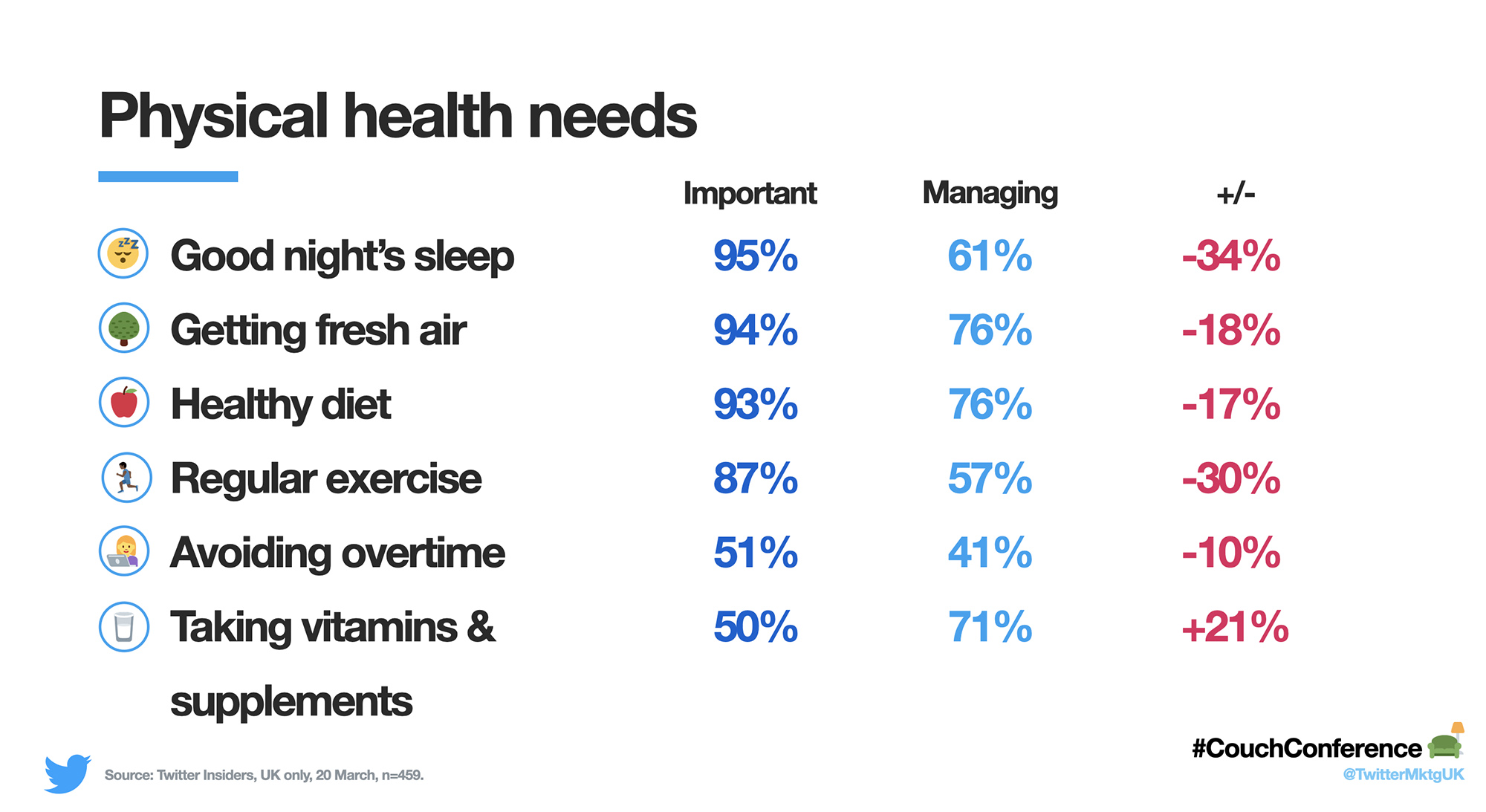
What is perhaps more interesting is the mental health challenge the situation presents. While COVID-19 affects us physically, the restrictions and changes to our lives can significantly affect our mental health.
A third of our Twitter Insiders community are already telling us that they are worried about their mental health. We see that reflected on Twitter as well in Tweets from the likes of @TechnicallyRon and others.
Mental health needs are definitely impacted by our situation. And what that is doing is bringing different mental health needs to the fore. It shows what an overwhelming time this is for all.
Our research shows how important certain activities have become in our daily lives, such as socialising remotely. We have been finding ways to escape and discover more positive stories.
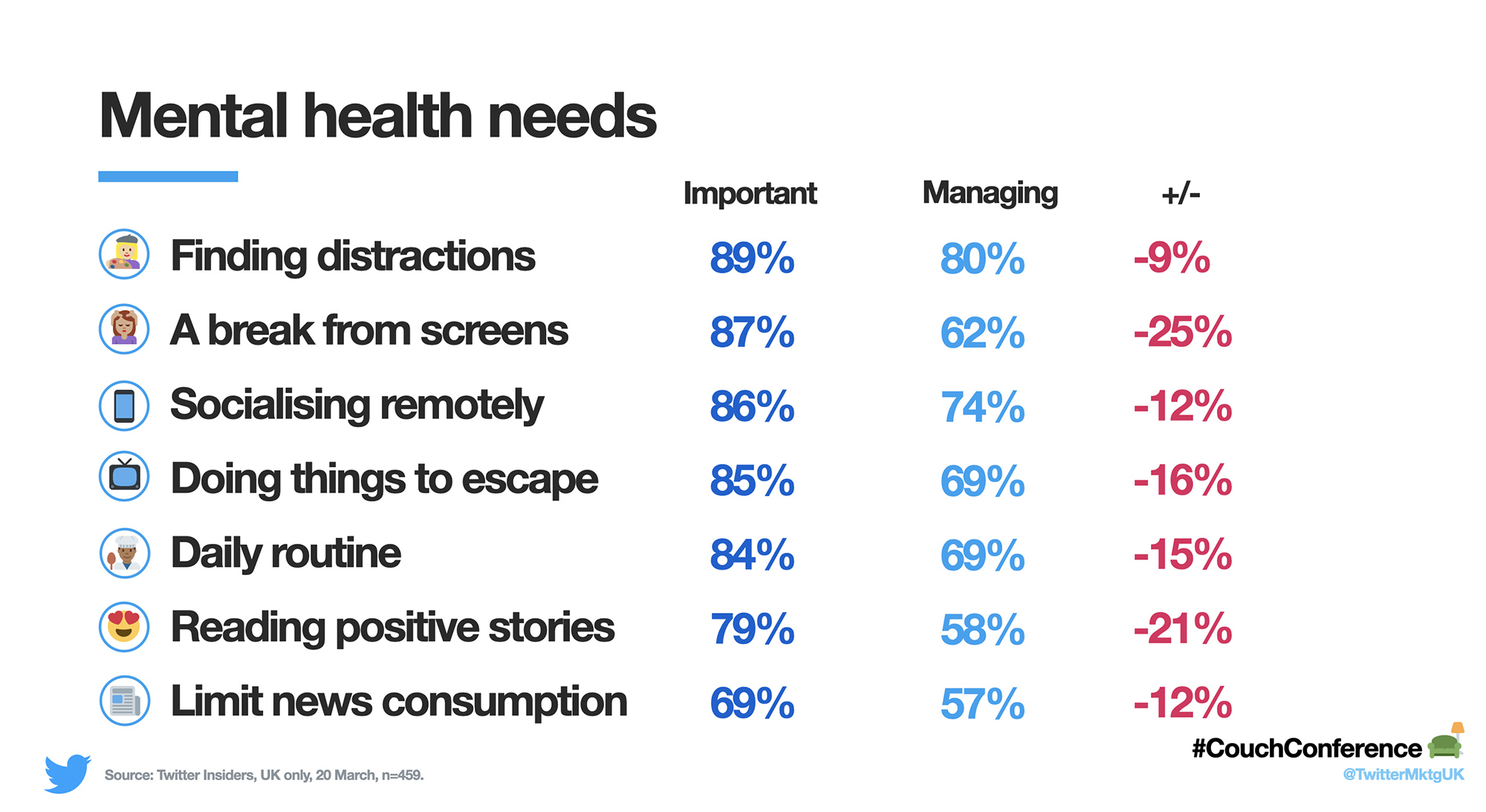
In the wise words of JLS, every minute's like an hour, every hour's like a day, every day lasts forever. March has certainly felt like that, which takes us to our last section: boredom.
There has been an increase in the conversation around boredom.
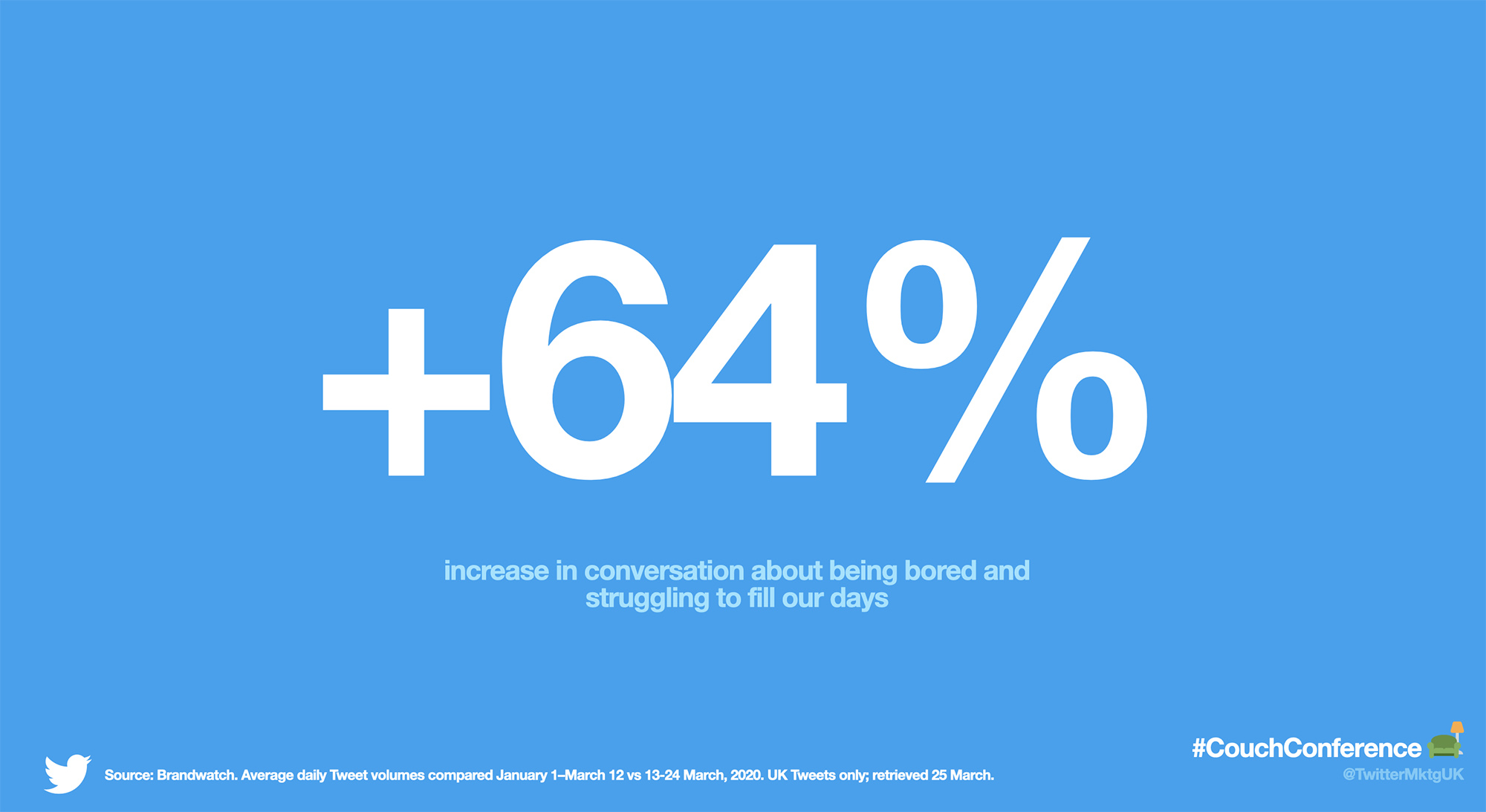
However, it didn’t come across as an immediate mental health need in our research, and when we spoke to Twitter Insiders, we found that not everyone is bored yet.
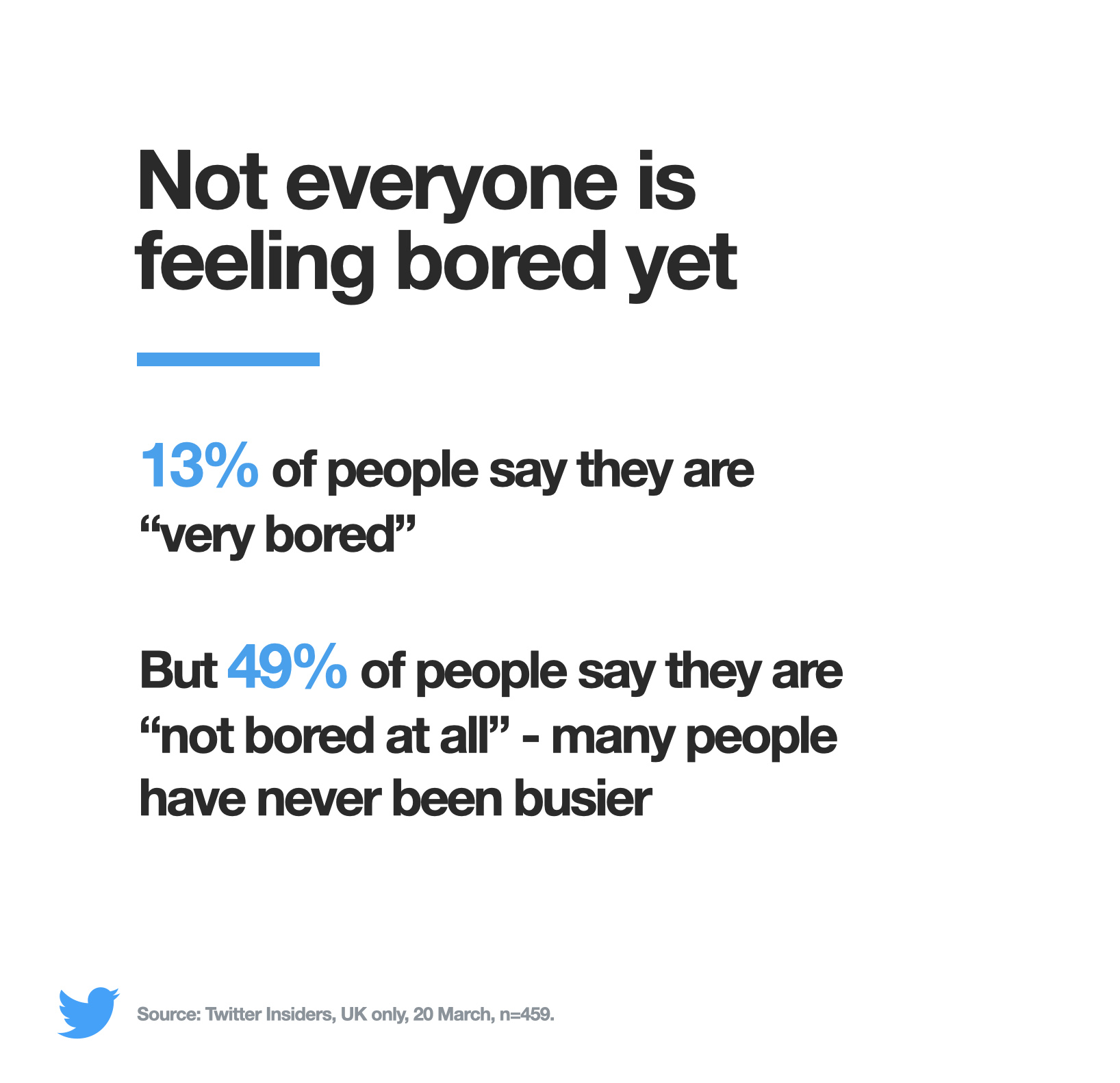
Although to be fair, some of us like Lucy are showing that there are always new and exciting ways to stave off boredom.
Boredom is very dependent on life stage and lifestyle and not an immediate mental health need. @ClareHarrop85 summed this up neatly.
At the end of the day we have to be kind to ourselves, be patient with ourselves and kind to each other. And recognise that we won't be able to fill our needs as well as we could pre-lockdown.